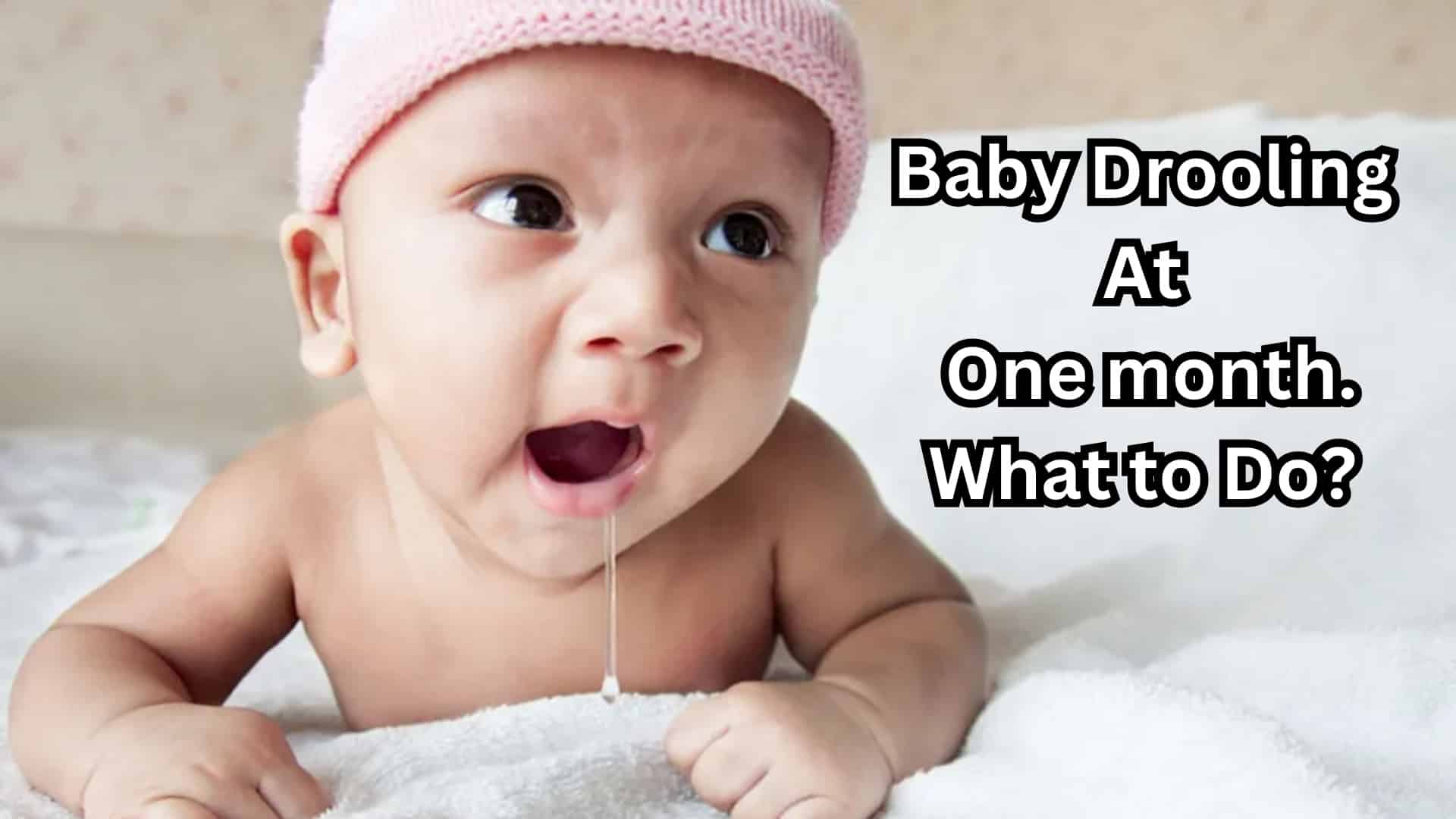
Hey there, new parents! Noticing your 1-month-old baby drooling a lot? No worries—it’s super common!
Drooling is when spit or saliva drips out of a baby’s mouth. Think of it as a little waterfall of slobber! It’s a normal part of a baby’s growth, especially at this age.
Some people also call it slobbering or dribbling – whatever name you use, it’s all that cute but sometimes surprising wetness around your baby’s mouth and chin!
That tiny mouth is busy figuring things out, and drooling is just one sign of development. Wondering why it happens so much or how to handle it?
Don’t stress! We’ll share the reasons behind all that drool and some easy tips you can try to keep your little one comfy. Plus, it ties into their sleep schedule too—less mess means better rest!
Stick around for simple ideas to help you and your baby through this drooly stage with a smile!
Understanding Why Babies Drool
Babies often experience increased drooling or excessive saliva flow, especially as they develop. This natural process can begin as early as one month of age and is typically nothing to worry about for new parents.
- Developing Salivary Glands: As your baby grows, their salivary glands mature and become more active. This natural development leads to more saliva production, which they haven’t yet learned to swallow effectively.
- Teething Process: Even though teeth won’t appear for several months, the teething process can begin early. The body prepares by increasing saliva production, which helps soothe tender gums.
- Oral Exploration: Babies learn about their world through their mouths. This oral phase increases stimulation of salivary glands when they put fingers or toys in their mouths.
- Muscle Development: Young babies are still developing the muscle coordination needed to swallow excess saliva. Until these muscles strengthen, drooling happens more frequently.
- Digestive Aid: Extra saliva helps prepare your baby’s digestive system for future solid foods by containing enzymes that will help break down food.
Remember that drooling is a healthy part of your baby’s development and typically resolves as they grow older and gain better control of their oral muscles.
Is Drooling Normal at 1 Month?
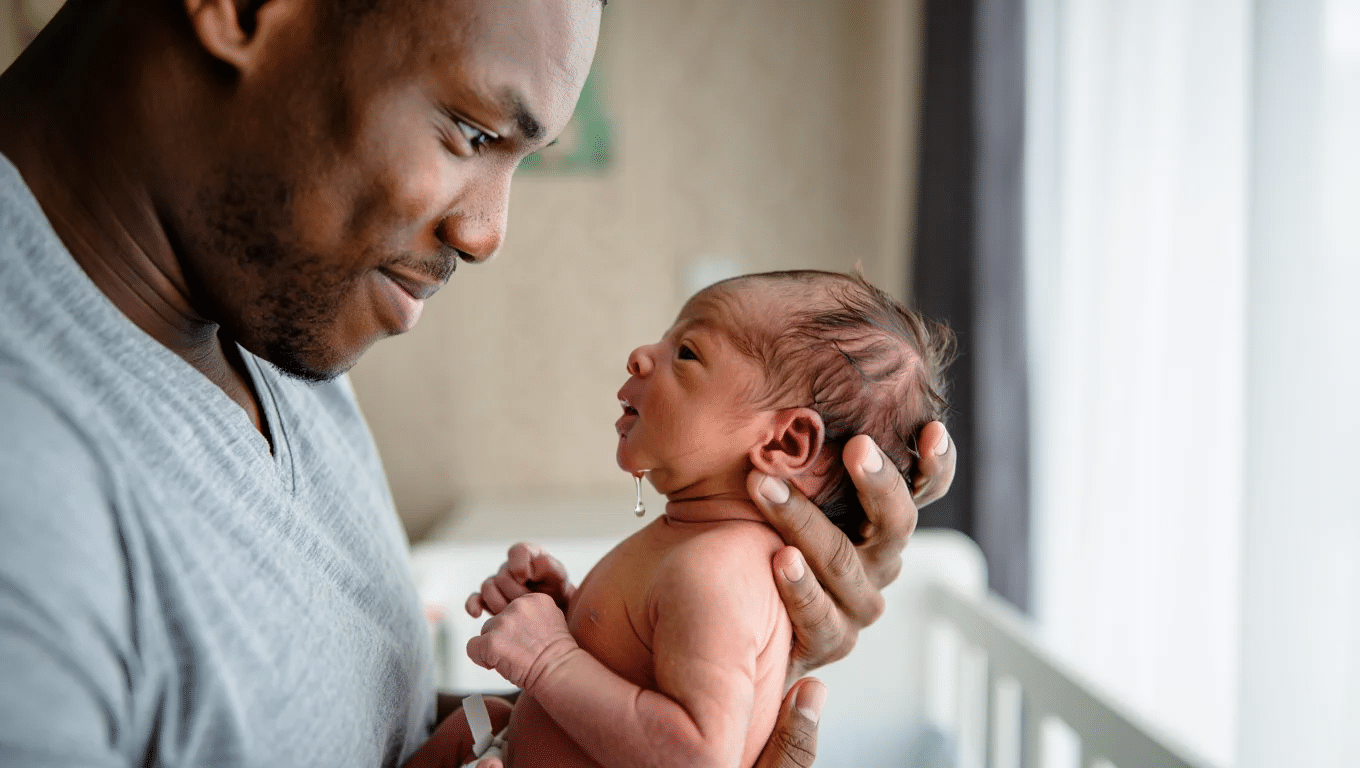
Drooling is completely normal for 1-month-old babies. At this age, babies are still developing control of their mouth muscles and swallowing reflexes.
Most newborns produce a lot of saliva, which can often dribble out because they haven’t mastered swallowing yet.
You might notice your baby’s chin, neck, or clothes getting wet from drool. This is a natural part of development and nothing to worry about.
Many parents keep soft burp cloths or bibs handy to wipe away excess drool gently.
Is It a Sign of Early Teething?
While drooling is often associated with teething, it’s unlikely that a one-month-old baby is teething. Most babies don’t start getting teeth until around six months of age.
Some may get teeth earlier (around three to four months), but teething at one month is extremely rare. The drooling you see in your 1-month-old is simply part of their normal oral development, not an early sign of teeth coming in.
Why Parents Worry About Early Drooling?
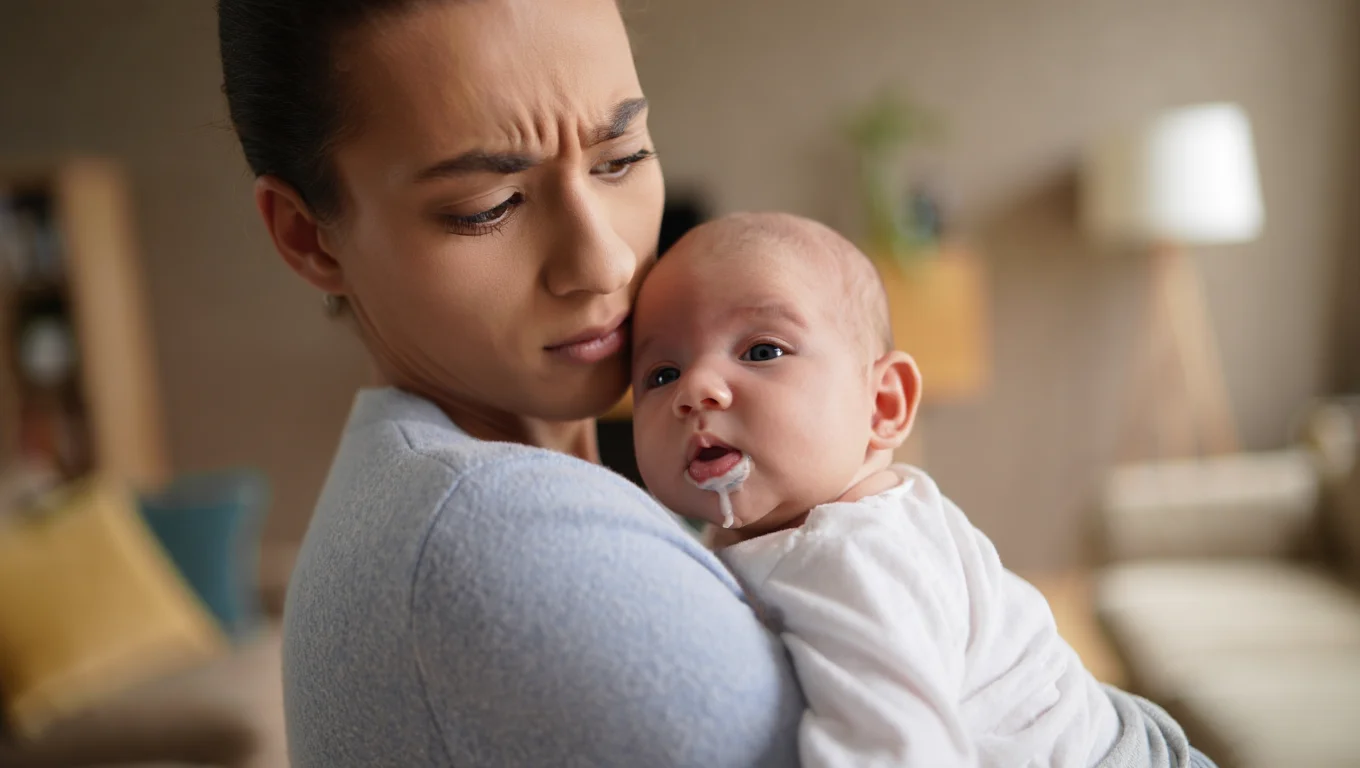
Many parents become concerned when they notice their one-month-old baby drooling. This worry is completely normal!
New parents often question whether early drooling is a sign of a problem or simply part of healthy development.
Some parents worry that too much drooling might mean their baby has trouble swallowing or might be at risk for choking. Others wonder if early drooling means their baby is teething much sooner than expected, even though teeth typically don’t appear until around 6 months.
Parents may also worry about practical issues like keeping their baby dry and comfortable when drooling happens during sleep time.
Constant wetness around the neck can cause skin irritation or rashes.
Understanding what’s normal for drooling can help parents feel more relaxed about this common baby behavior and know when it’s actually part of healthy development.
When Does Drooling Typically Start in Babies?
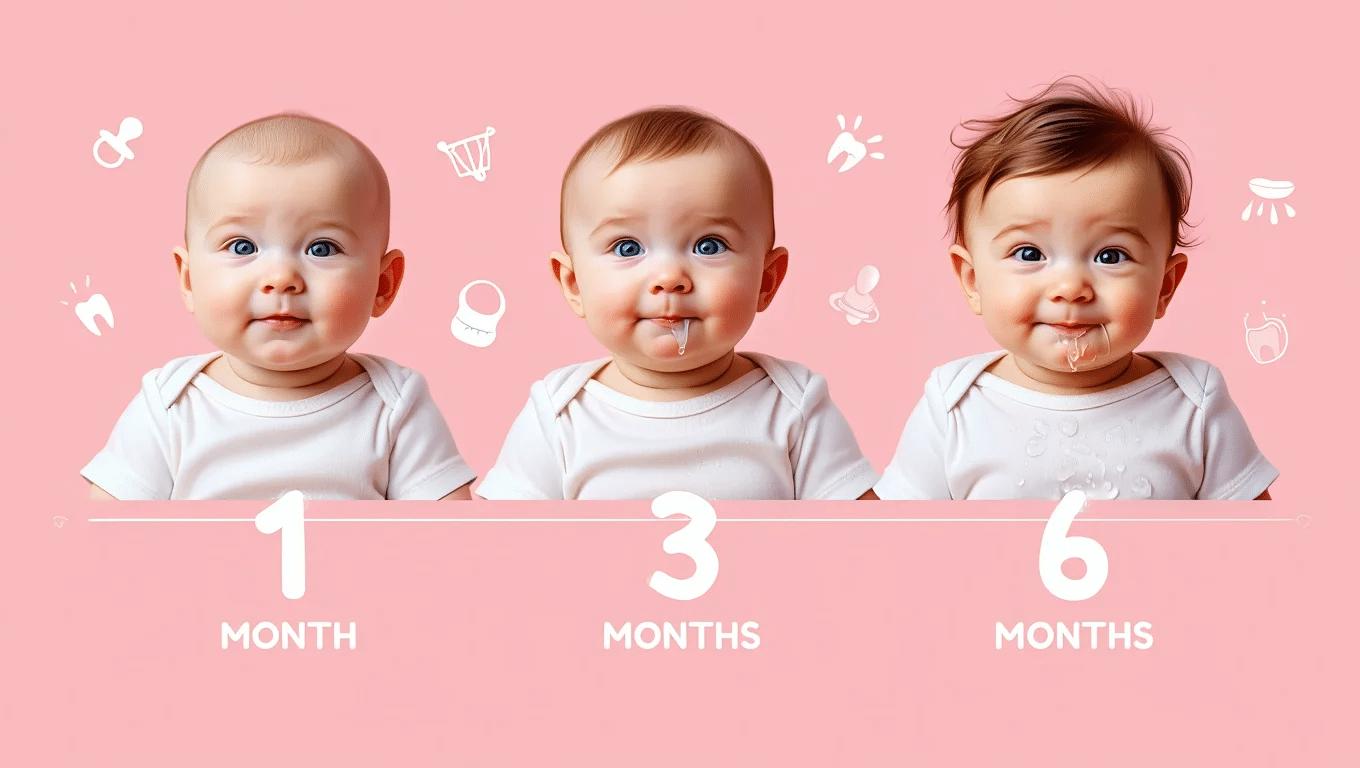
Most babies start drooling between 3 to 6 months of age. This happens because their salivary glands begin working more as they get ready for solid foods.
While some babies might drool a little in their first month, heavy drooling typically doesn’t start until closer to 3 months old.
If you notice your 1-month-old baby drooling, it’s usually normal but could mean they’re hungry or teething early. Drooling helps babies digest their first foods and keeps their mouth healthy.
It’s also a sign that your baby is growing and developing normally.
General Drooling Timeline
| AGE | DROOLING PATTERN |
|---|---|
| 0-2 months | Minimal drooling, mostly during feeding |
| 3-6 months | Drooling increases, often when excited |
| 6-12 months | Heavy drooling is common, especially during teething |
| 12-24 months | Drooling gradually decreases as mouth control improves |
| 2+ years | Most children have better control over saliva |
Why Do Some Babies Drool Earlier Than Others?
Every baby develops at their own pace, with some showing signs of drooling sooner than others. Here are some signs that describe why some babies drool earlier than expected:
- Teething: Some babies begin the teething process earlier, triggering increased saliva production
- Muscle development: Babies with developing oral muscles may have less control over swallowing
- Genetic factors: Family patterns can influence when drooling starts
- Feeding habits: Bottle-fed versus breastfed babies might show different drooling patterns
How to Manage Drooling in a 1-Month-Old?
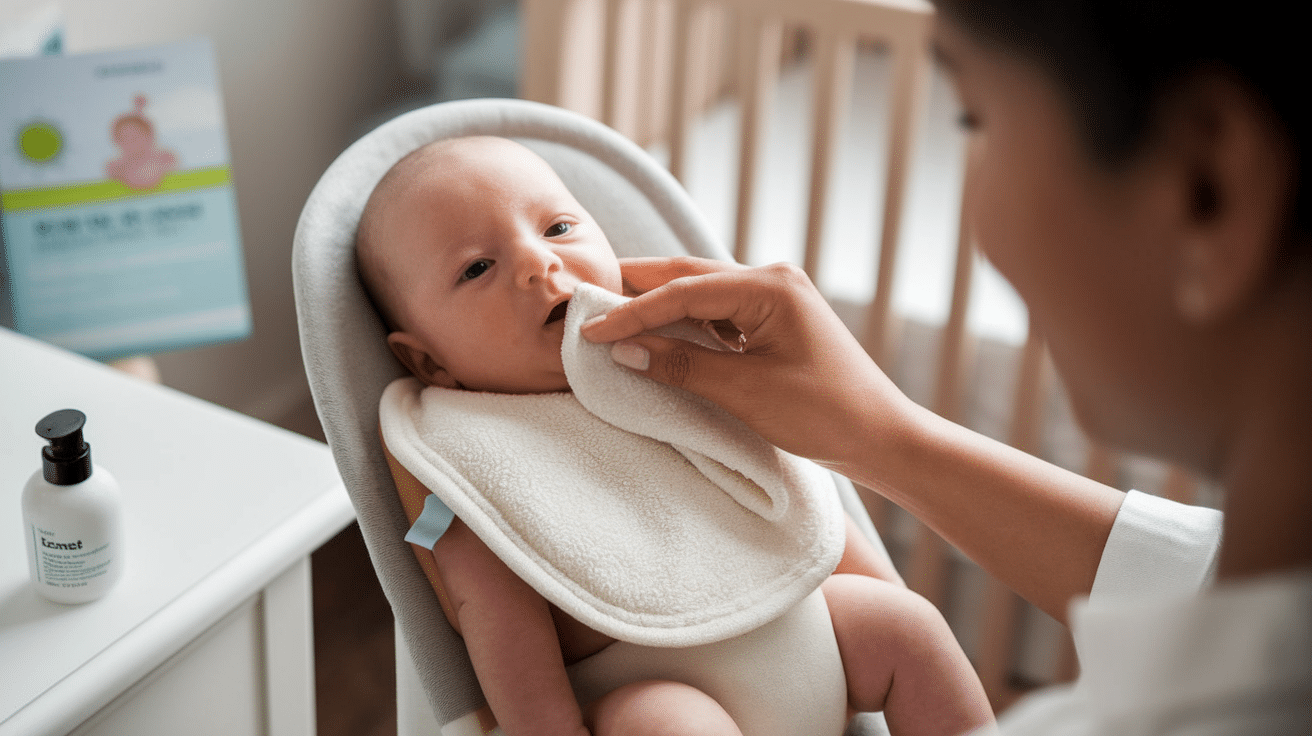
Drooling is normal for babies at 1 month old as their swallowing reflexes are still developing. Managing drool can help prevent skin irritation and keep your baby comfortable throughout the day.
- Keep soft burp cloths or bibs handy to wipe drool gently as needed
- Change wet bibs frequently to prevent skin rash and discomfort
- Use a gentle, fragrance-free moisturizer on baby’s chin and neck to create a barrier
- Pat rather than rub when drying drool to avoid irritating delicate skin
- Position baby upright after feedings to help reduce excess drooling
- Watch for signs of teething, though it’s early, as this can increase drooling
- Consult your doctor if drooling seems excessive or is accompanied by other symptoms
Remember that drooling is a natural part of your baby’s development and usually decreases as they grow and gain better control of their swallowing reflexes.
When to Talk to Your Pediatrician?
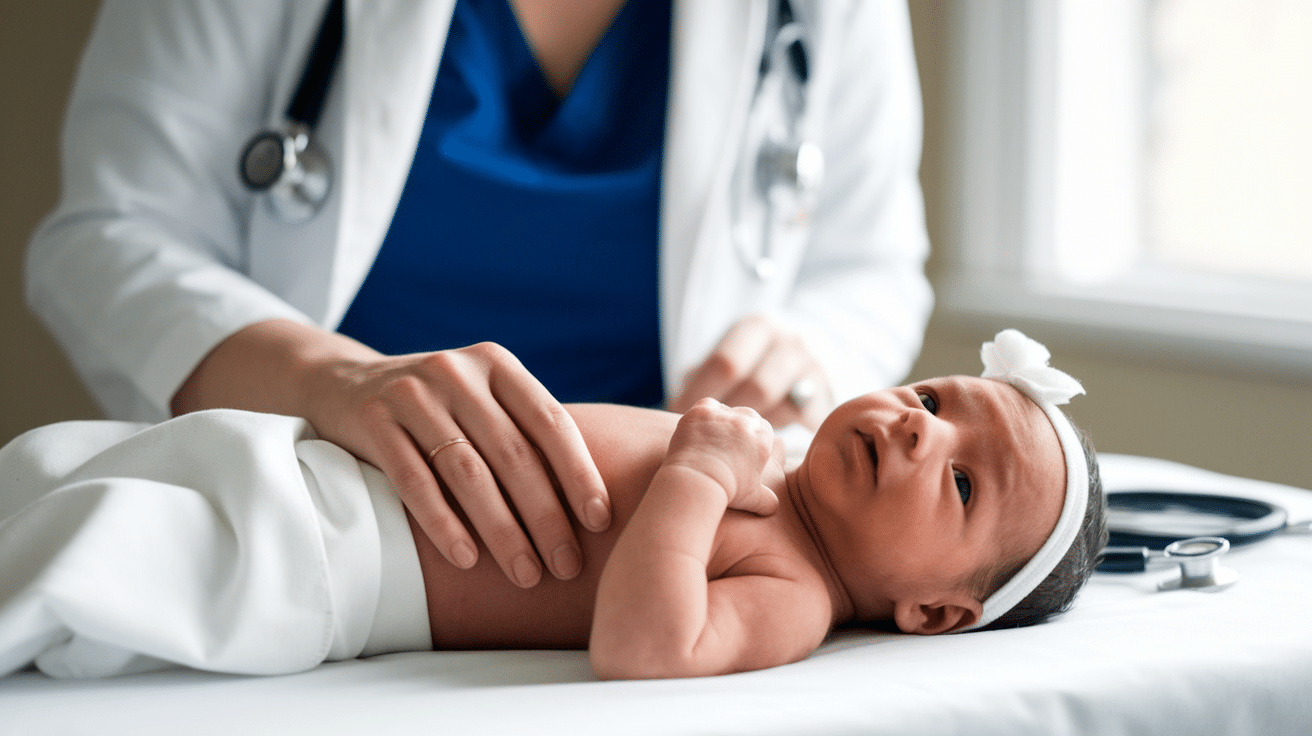
While some drooling is normal for 1-month-old babies, certain signs may indicate a problem that requires medical attention. Don’t hesitate to contact your baby’s doctor if you have concerns.
If you notice these signs, contact your doctor immediately:
- Excessive drooling accompanied by difficulty breathing or swallowing
- Drooling with a high fever (over 100.4°F or 38°C)
- Refusal to feed or significant decrease in feeding
- Unusual fussiness or crying that cannot be consoled
- Rash or swelling around the mouth or face
What Your Doctor Might Check
Your pediatrician will perform several examinations to determine if your baby’s drooling is normal or a sign of an underlying issue.
- Physical examination of your baby’s mouth, throat, and neck
- Assessment of feeding patterns and weight gain
- Evaluation of your baby’s overall development
- Check for signs of teething (though uncommon at 1 month)
Final Thoughts
Drooling in 1-month-old babies is perfectly normal and nothing to worry about. Babies naturally produce more saliva than they can swallow, and they haven’t mastered control of their mouth muscles yet.
While drooling is harmless, it can cause skin irritation if not managed properly. Using the tips shared will help protect your baby’s sensitive skin from rashes and chapping.
As your baby grows, especially when teething starts at around 3-6 months, drooling may increase. Contact your doctor if drooling comes with fever or feeding problems. Otherwise, rest assured that your drooly baby is developing just as they should.
Remember that every baby is different. Your baby might be growing quickly than others.
If you’re interested in more informational content on mothers and babies, feel free toclick here and explore other blogs that you might enjoy.
